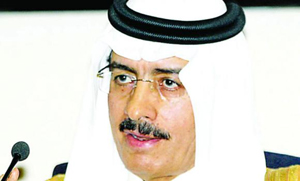 Makkah, Aug 17: Haj Minister Bandar Hajjar has denied allegations that some countries had raised objections to the 20 percent reduction in the allocation of number of pilgrims allowed for Haj.
Makkah, Aug 17: Haj Minister Bandar Hajjar has denied allegations that some countries had raised objections to the 20 percent reduction in the allocation of number of pilgrims allowed for Haj.
Hajjar said the ministry had finalized the allocation of the number of pilgrims that can be accommodated for Haj for various countries, because of the ongoing expansion works undertaken in the Grand Mosque, particularly the Al-Mataf project.
As for the implementation of stringent procedures being adopted because some countries were going through extraordinary circumstances.
The ministry met with all Haj missions and informed them about the strict procedures, and received assurances from them that they would comply with these rules, the minister said.
The instructions mainly focus on the fact that pilgrims should perform their rites without indulging in activities that would affect pilgrims’ safety and security.”
The minister also pointed out that special arrangements had been made for the smooth entry of Syrian pilgrims. The ministry has signed an agreement with the Syrian National Council to facilitate Syrian pilgrims’ crossing through Jordan, Turkey and Lebanon.
The ministry is still working on putting in place a general scheme for the pilgrims’ city in Madinah and Makkah. It is also making all efforts to serve pilgrims from the minute they arrive in the Kingdom until they leave for their countries, he added.
The Haj Ministry has sought cooperation of the ministers of Islamic affairs and holy sites in neighboring countries that still use old buses to transport pilgrims, which in the past led to accidents resulting in loss of life and injuries. The ministries in other Arab countries were asked to transport their pilgrims only up to Makkah in vehicles that are checked for their road worthiness and safety.
Public transport for pilgrims that work under the umbrella of the general union for motorists are subject to various tests to make sure they are safe to transport pilgrims.
The Umrah season was quite successful, and pilgrims left for their countries after performing Umrah rites smoothly and easily, Hajjar said.
The minister said a meeting will be held soon to give final touches to the ministry’s preparations for this year’s Haj.
The preparations were announced during the Ministry’s Eid reception for its employees in Al-Azeziyah neighborhood.
The reception was attended by Secretary-General of the Ministry of Haj Hatem Qadi, the ministry’s press spokesman, and Eisa Rawas, the ministry’s secretary-general for Umrah affairs.





Comments
Add new comment